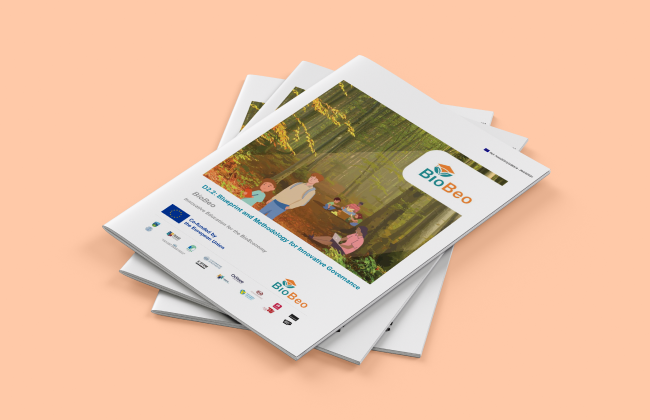Do you want to bring innovation to schools?

Digital Handbook: Practical Paths for Introducing New Content into Schools
If you feel that the school does not teach everything it should, that new content needs to be introduced – both related to bioeconomy and other topics – this Digital Handbook can be your guide at the beginning of this journey.
It was prepared as part of the BioBeo project, which introduces new thinking and approaches in education on the bioeconomy across Europe.
It brings closer the institutional and social environment related to the introduction of new content (especially – but not only – bioeconomy) into schools and detailed models and conditions of this process. You will get to know, among others, the most important actors, typical procedures, and barriers you may encounter.
Navigate the Handbook by moving to the next sections indicated below. In many sections, in addition to direct tips, you will find materials that you can use – both developed as part of the BioBeo project and available elsewhere.
Let’s get started!
Materials to use:

Developed BioBeo Education Programme

